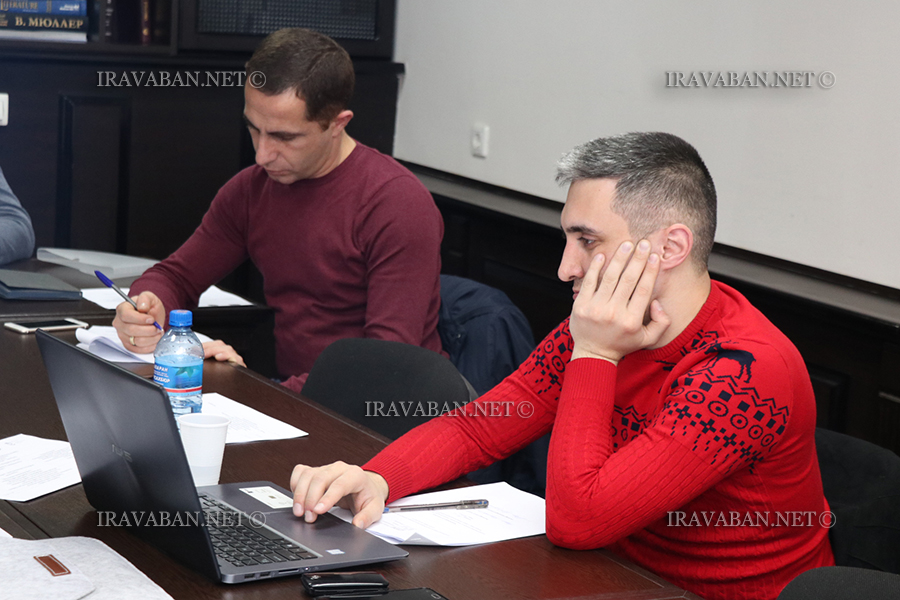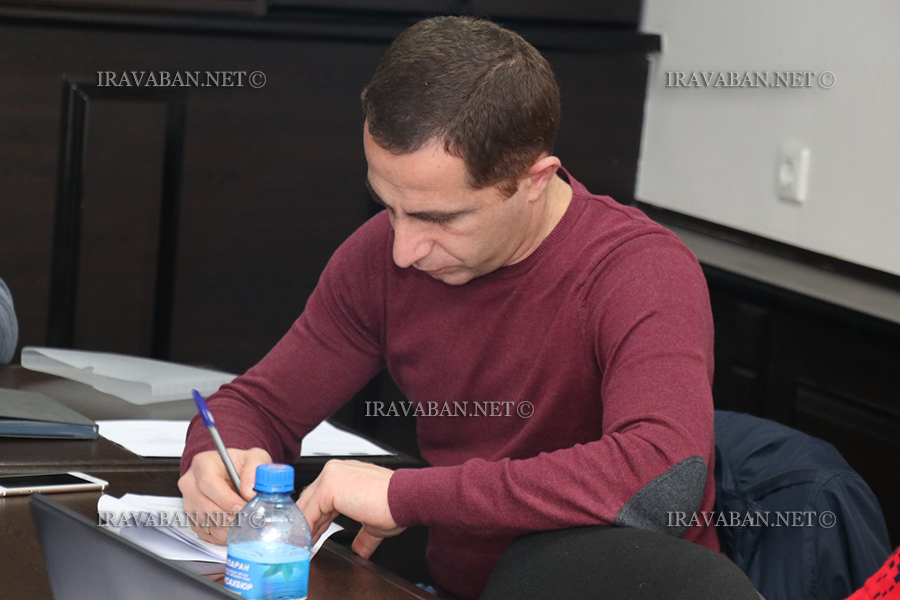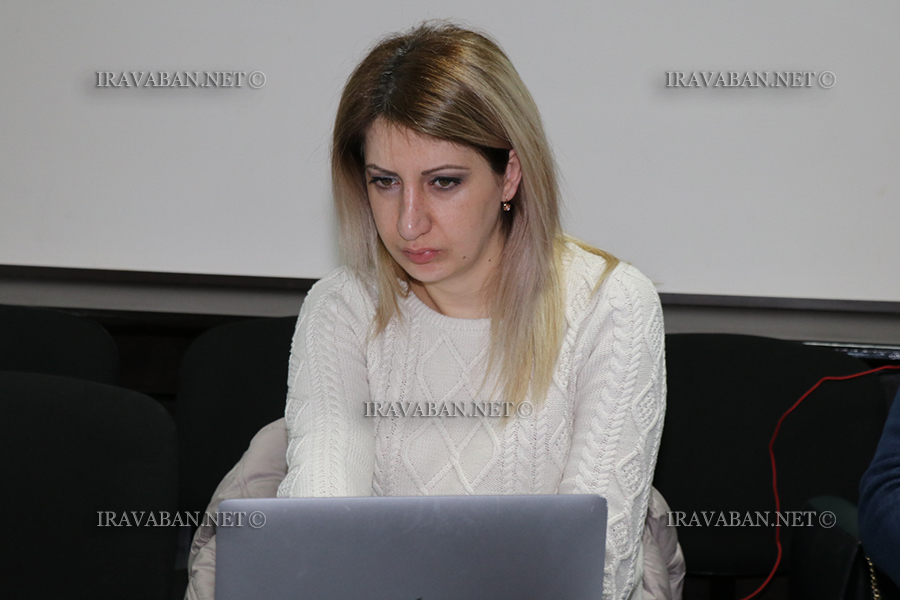On 19 March, the Armenian Lawyers’ Association (ALA) organized a training on “Anti-Corruption Compliance in Business” for the representatives of small and medium-sized businesses in the scope of the “Armenia: Promoting Anti-Corruption Conduct and Reforms” Project. The training was held in Yerevan.
At the beginning of the training, the participants completed tests, which included a number of questions about corruption schemes, anti-corruption compliance program, information on which is provided during the whole course. The same test was completed at the end of the course as well to compare the knowledge learned in the course.
During a conversation with us project expert Lusine Nalbandian said that business representatives were actively involved in the discussions.
“They specifically raised legislative gaps that could foster corruption risks and lead to corruption,” she said.
Ms Mariam Zadoyan, Project Manager of the ALA’s Component of “Armenia: Promoting Anti-Corruption Conduct and Reforms” project presented to the training participants the core components of the Anti-Corruption Compliance. According to her, the participants were interested with the concept of Conflict of Interests and brought examples from their own experience, asking whether this or that phenomenon can be viewed as a conflict of interest, or whether any of their actions may be considered as a manifestation of corruption?
Hayk Hayrapetyan, Chief Executive Officer of “Best Contract” LLC Law Office, said in a conversation with us that the training was useful for the participants, because, in case if legislative changes were made in the future, organizations could be guaranteed from the perspective of legal protection.
“I would like to see the anti-corruption compliance program in the organization. I think it will require some finances. We need to understand what the policy of state bodies will be if we move toward Euro-integration, if the merger of legal systems continues, and which will involve certain mandatory requirements for organizations, and then this will not simply be important but rather necessary,” he said.
According to Hayk Hayrapetyan, the organization can not benefit from corruption, as the first and most important factor for the organization is the business reputation of the company and corruption, is its first enemy.
According to Samvel Gevorgyan, who is the head of the “Siber Gates” Co.LTD, corruption can help the organization, but it will be temporary, and later the losses will be bigger. ” For example, at the moment, a contract will be signed, a problem will be settled, but then, if the benefits and damages caused are put on the scale, the risk is that the future losses will be several times higher, including the fall of the company’s reputation and criminal liability,” he said.
Samvel Gevorgyan also notes that the introduction of anti-corruption programs will be useful both for internal hazards and threats of the organization, but also in cooperation with different companies.
The participants also found out through the game why businesses need to introduce the anti-corruption compliance program, as well have done corruption risk assesment in their own businesses and presented solutions.
It should be noted that the trainings for business representatives have already been held in Gavar and Vanadzor, in the upcoming days training will be held in Gyumri and Kapan as well.
This material has been prepared in the scope of the “Armenia: Promoting Anti-Corruption Conduct and Reforms” Project implemented by the “Centre for International Private Enterprise”, the “Armenian Lawyers’ Association” NGO, the “Corporate Governance Centre” NGO and the “Yerevan Chamber of Commerce and Industry” with financial support of the National Endowment for Democracy. The contents of this material are the sole responsibility of the “Armenian Lawyers’ Association” NGO and can in no way be taken to reflect the views of the National Endowment for Democracy.











